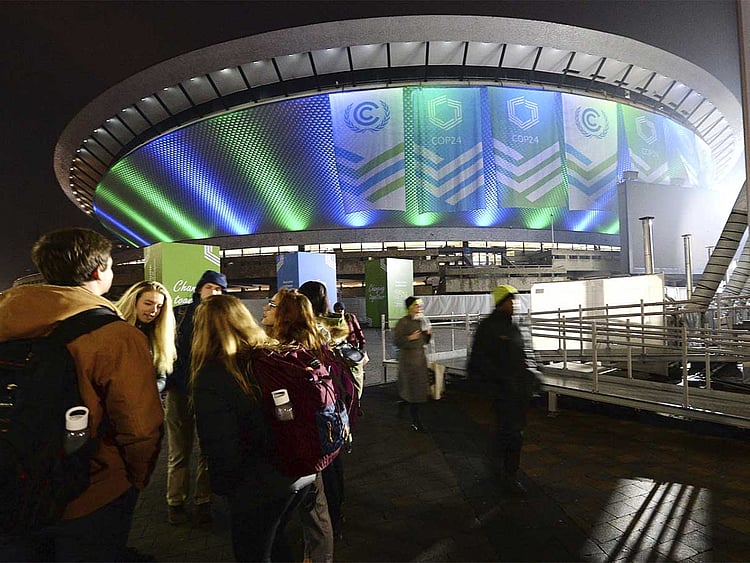The optimists won. The Paris Agreement on climate change now has a ‘user manual’. On December 15, after three years of negotiations under the United Nations Framework Convention on Climate Change, countries reached agreement on the ‘Paris rulebook’. This set of guidelines will help breathe life to the Paris Agreement. The robustness of the rulebook is an indicator of the broad support that multilateralism continues to have in the fight against climate change — a problem with only a global solution.
If some had doubts about continued international support for the Paris Agreement, they had a good reason for that. Brazil, the world’s eighth largest economy, recently elected a president who, during his campaign, had promised to withdraw the country from the Agreement. Meanwhile, in Europe, which has traditionally demonstrated strong leadership in both cutting emissions and providing support to developing countries, focus has been more on the domestic side, with France grappling with the yellow vests movement, Germany preparing for a leadership transition and the United Kingdom struggling with how to leave the European Union (EU).
Despite the difficult political climate, last week, 196 governments unanimously settled to close to 100 pages of text that will guide the individual and joint efforts of all countries to combat climate change. This guidance will be crucial to ensure transparent flow of information on both — countries’ intentions and their actual actions.
The so-called Katowice Climate Package, named after the Polish host city of this year’s conference, contains instructions that all countries should apply from 2020 onwards while communicating on their actions to reduce their greenhouse gas (GHG) emissions or to adapt to the adverse impacts of climate change, such as storms or droughts. Industrialised countries are also required to regularly report on the climate finance that they intend to provide for developing countries and later account for the funds they actually made available.
The package also sets the rules for different institutional arrangements under the Paris Agreement, such as a compliance committee, which will be allowed to initiate consideration of non-compliance if a country has not submitted its plans or its reports on emissions or climate finance to the UN. It also defines the exact process by which the UN will periodically take stock of how countries are making progress towards keeping the world safe from catastrophic climate change. This ‘global stocktake’, which will take place every five years, will inform countries as they design their updated national climate change plans, also every five years, as part of what is commonly described as the Agreement’s ‘ambition mechanism’ — the heartbeat that now needs to become stronger.
The agreement in Katowice was significant for at least two reasons. First, it resolved major and politicised differences in view that were left unresolved in Paris in 2015, which evolved around how to ensure sufficient flexibility for emerging economies and other developing countries in implementing the Agreement and how to make sure that there will be sufficient climate finance to help developing countries as they reduce their emissions and adapt to the already unavoidable impacts of climate change. Second, it provided rules that are sufficiently detailed and binding and common for all. Common guidelines are crucial because reporting on countries’ emission reductions by using the same metrics and methodologies, for example, will allow for scientists to add up different countries’ pledges and actions to see how well we are on track and how much still remains to be done.
What Katowice did not succeed in was convincing the world that countries are on track to saving the world from climate change. This was not the principal aim of this conference, it can be argued. But the backdrop was hard to ignore: The year 2018 has seen numerous weather extremes and natural disasters across the world, including a scorching summer in Europe, and deadly monsoon rains in India and wildfires in California. Messages from science are also growing stronger and more urgent.
While countries now have a solid rulebook for the Paris Agreement, there are few signs that the warning signals from nature and science are translating into sufficiently fast economic transitions on the ground. Global GHG emissions grew in 2017 while latest science suggests that saving many small island states would require emissions to be halved from current levels by 2030. Even staying below the 2 degrees Celsius limit, to which all countries subscribe, will require unprecedented efforts from everyone, ranging from governments through companies to individuals. The 2019 Abu Dhabi Sustainability Week, which will again bring decision-makers and businesses from all around the world to the UAE capital next month, will be the first opportunity to signal levels of ambition that match the scale of what is needed.
The Paris Agreement is ready for implementation. Now we all need to make it our priority.
Dr Mari Luomi is Senior Research Fellow at the Emirates Diplomatic Academy.
Sign up for the Daily Briefing
Get the latest news and updates straight to your inbox
Network Links
GN StoreDownload our app
© Al Nisr Publishing LLC 2026. All rights reserved.
